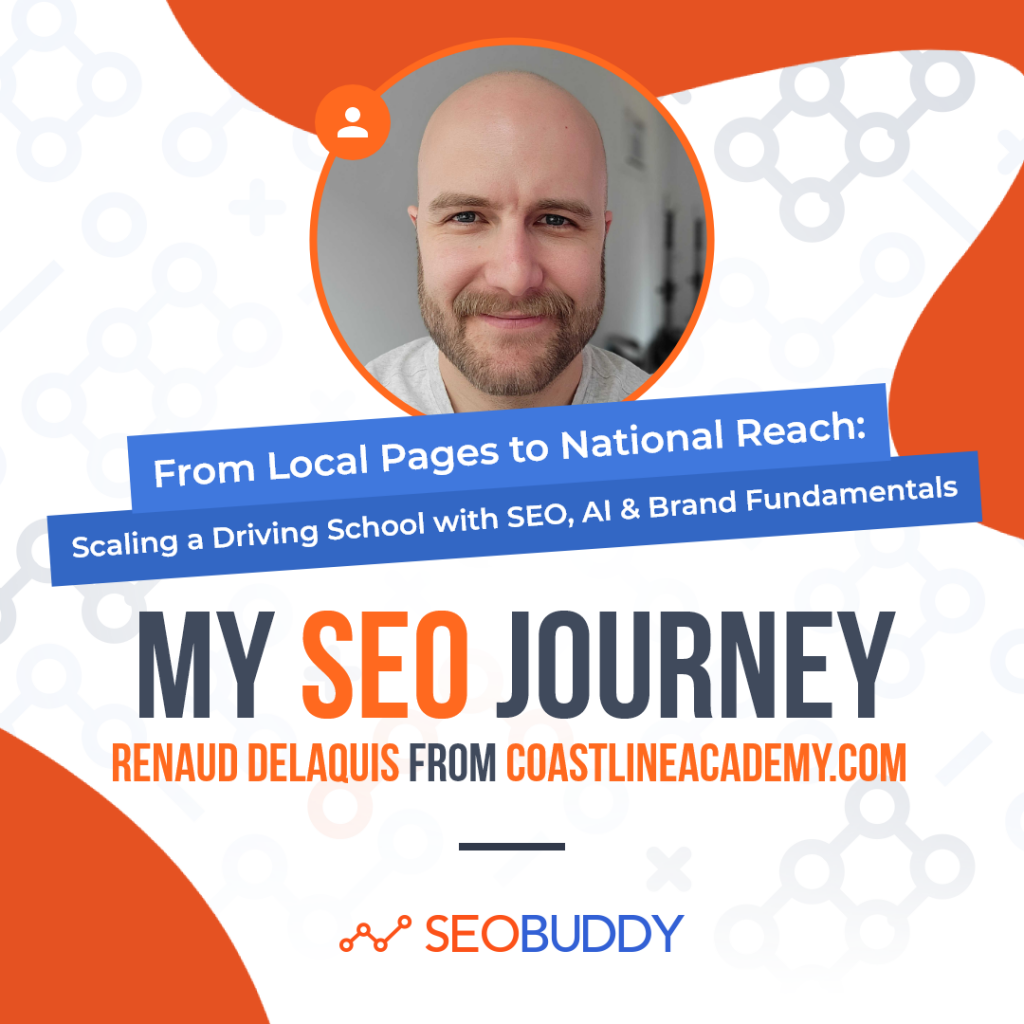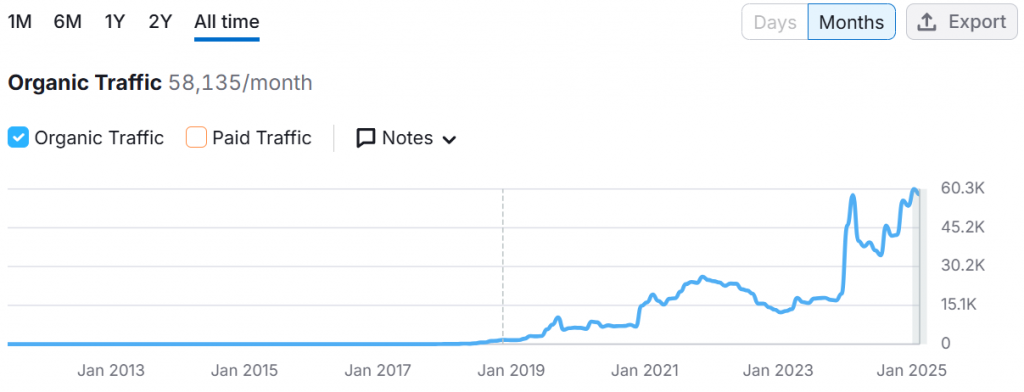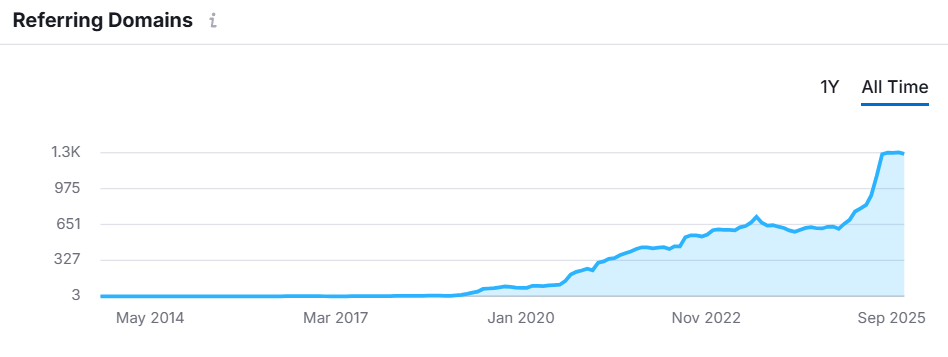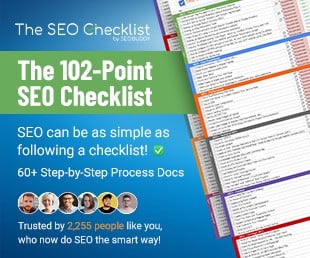My SEO Journey: Renaud Delaquis from coastlineacademy.com – From Local Pages to National Reach: Scaling a Driving School with SEO, AI & Brand Fundamentals
My SEO Journey is a series where entrepreneurs and Indie makers share their honest SEO Journey filled with failure and success, and most importantly, proven results. Episode #169 features Renaud Delaquis from Coastline.

Hey I’m Renaud Delaquis and I run marketing at Coastline, the first national driving school in the U.S. It still surprises a lot of people that a national driving school didn’t exist before us. Our main product is simple but important: high-quality driving lessons. We help teens who are just getting started, adults who waited until later in life, and international residents who need U.S. licenses. All of our lessons are taught by certified instructors and scheduled online, which makes the process way more convenient than most local schools. The mission is straightforward. We want to create safer, more confident drivers and make learning to drive consistent no matter where you live.
What’s your backstory and how did you get involved with Coastline?
I didn’t grow up dreaming of working in driver education. What pulled me in was the scale of the challenge. Driving touches almost everyone’s life, yet the industry felt like it was stuck in the 2000’s. Coastline had already spotted the opportunity to build something national and modern. When I joined, I saw right away there was a huge role for marketing to play in shaping the brand and reaching people who had never thought about driving schools in this way.
For me, the appeal was clear. I had worked on brands before, but usually in industries where the market was already crowded with polished players. Here, we had the chance to create a national brand in a space that had no clear leader. That felt both exciting and intimidating, which is usually a good sign.
So I didn’t invent the idea for Coastline, but I knew I could help grow it. I came in with the mindset that marketing could be a major differentiator. If we told the story well, if we showed parents and students that Coastline was different from the outdated local schools they were used to, we could change how people thought about learning to drive.
Since launch, what has worked to attract more organic traffic?
People don’t search for just “driving school”, they search for “San Diego Driving School” or “Driving Lessons in Los Angeles.” We leaned into that by creating thousands of localized landing pages that weren’t just generic copies but unique enough for Google to consider it as such. This was early AI days and some of the “uniqueness” is pretty rough in today’s standards, but it did its job.
Even if 95% of these pages didn’t bring in meaningful traffic, combined they did. It allowed us to capture traffic from small suburbs that didn’t have a driving school and be the most relevant page for their query. For example, Los Angeles has over 80 granular landing pages. We didn’t win the “driving school in LA” query for a long time, but we did rank well for some of these smaller places which eventually allowed us to have a presence in the entire metro area.
Partnerships were another lever. By collaborating with high schools and community groups, we got listed on resource pages, which gave us backlinks from trusted local sites. Those backlinks helped us rank better, but they also brought in direct referrals from people who trusted those organizations.
And then there’s the fun stuff: optimizing the customer journey. One of the first major strategies I implemented was a full journey optimization. Making sure the pages converted well, that we had enough touchpoints, that happy customers were leaving positive reviews, and, most importantly, that we had tactics in place to stimulate the ultimate organic channel: word of mouth. This holistic approach did not lead to a significant increase in organic traffic, but it did increase the value of the traffic by a lot and solidified our brand as a trusted driving school.
Have you learned anything particularly helpful in your SEO journey?
The biggest mistake we made early on was chasing the big flashy keywords. Ranking for “driving school” sounded cool, but the leads were weak compared to more specific searches like “driving school near me” or “road test practice in Dallas.” Once we focused on intent instead of volume, everything got easier.
I also learned pretty quickly that SEO advice online doesn’t always apply to our context. A lot of it is targeting affiliate marketers, dropshippers, or other e-commerce websites that require advanced SEO tactics to gain an edge against their competitors. Our business is half online, half in person, giving us a wider range of tools to work with. For example, a local partnership is worth more to Coastline than just the backlink they provide.
Another lesson was patience. If you’re used to paid ads, SEO feels painfully slow. But once the compounding effects kick in, it’s powerful. Every page that ranked well lifted the whole site’s authority, which meant the next page ranked faster. You just have to trust in the process and be willing to wait for the results.
And maybe the most important lesson: don’t freak out when Google changes things. We’ve been hit by updates that tanked our traffic overnight. It’s frustrating, but you can’t control it. We were doing all the right things in 2023 and organic traffic was going down. But we kept at it and shifted our attention to things we could control instead.

(SEMrush numbers are not accurate, but the trend is)
What you can control is going back to marketing fundamentals: Create relevant and useful content, offer a great service or product, and have an efficient funnel. Remember that Google is only looking for signals that you are doing these things. Their updates are just them trying new ways of finding these types of businesses. I’ve been slowly deprioritizing SEO-centric tactics in favor of these things and have seen our revenue grow even when organic traffic dipped like in 2023 and again in 2024. Paradoxically, the 2025 traffic increased significantly, which meant even more revenue from this channel. I truly believe focussing on these fundamentals will be more beneficial to your business and will indirectly increase your search rankings.

Now it’s time to discover the other 102 steps that will get more organic traffic flowing to your website. Get the SEO Checklist here.
Want to get a sneak peek of what it looks like?
Enter your email and get a free demo version of the SEO Checklist.
What SEO tools do you use for your business?
We keep it simple. SEMrush and Ahrefs are our main tools for keyword research and competitor analysis. It helps us figure out what’s worth writing and where our competitors are getting links.
For content optimization, we’ve used Surfer SEO. It’s helpful as a guideline for writers, especially to make sure we’re not missing obvious keywords, but we never want the content to feel robotic.
And then of course, Google Search Console is non-negotiable. It shows us what’s working, what’s broken, and where there are opportunities we didn’t even know about. Paired with Analytics, it’s the heartbeat of how we measure organic.
Can you share your efforts related to link-building?
I’ve tried the whole spectrum: paying for links, hiring agencies, and chasing placements. To be honest, it never really felt right. I would get backlinks from good websites on paper, but the actual article was garbage and the website looked like a sketchy blog, or I would get mentions in high profile publications, but as a quoted expert in windshield wiper accessories.
Unfortunately, I think this is a necessary step for most businesses. But I can tell you it gets better if you take the time to build up that PR and social media snowball. You won’t get a prime feature if you have no following or authority in your space, but you can definitely work your way there. Once this happens, it gets so much easier. You can definitely see a flywheel effect in the report below where one good publication leads to another and you build a network of relationships, but we only recently got there. Now that we have major features (ex. this inc.com feature) and podcasts in the pipeline so I expect this to climb even more.

So the short answer: our link-building now comes from PR, social media and partnerships. It’s slower, but it’s worth it.
What have been the most influential resources?
I don’t lean much on books for this. The resource I keep coming back to is the Marketing Against the Grain podcast. They talk a lot about AI and how it’s reshaping marketing, which feels very relevant right now. I genuinely believe the next phase of SEO is going to involve optimizing not just for Google but for AI-driven answers.
Outside of that, most of what I’ve learned has come from doing the work. Testing, failing, fixing, and trying again has taught me a lot. I see a lot of marketers over optimize on single things because they read something from an expert in a very niche field, but they miss out on a ton of low hanging fruits. I prefer the less talking, more doing approach. With everything moving so fast, I think the people consistently testing new things will be on the winning side.
What’s the next step in your SEO journey?
Right now, the big project is going back and improving the thousands of local pages we created early on. At the time, we used fairly basic machine learning to generate them. They worked, but now we have AI tools that can make them much better. The goal is to keep the scale while adding more depth and quality.
On the technical side, we’re also in the process of moving to server-side rendering so the site is easier to crawl. This has been a major issue for organic traffic, but necessary for other business reasons. I expect organic to increase once we unlock this. On the marketing side, I’m focused on strengthening the Coastline brand overall. SEO is one piece of the puzzle, but brand awareness, social media, and reputation management are just as important.
Reputation management in particular is a big focus. We want a wider footprint of reviews, not just on Google but also on Yelp, Trustpilot, and anywhere else people are searching. Not only do reviews add external keyword rich content about our business (even more once you start responding to all of them), but they build trust, and trust feeds both SEO and conversions.
Looking six to twelve months out, I see us doubling down on AI-driven optimization, expanding our brand presence, and continuing to build credibility through reviews and partnerships. My bet is the SEO benefits will follow naturally.
Where can we go to learn more?
You can check out Coastline at coastlineacademy.com. We also share updates on our social channels, where we post driving tips, safety reminders, and a look at what our instructors are doing in their communities.


